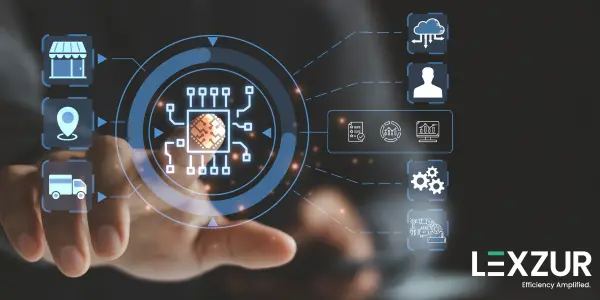Sustainability has evolved from a buzzword to a strategic necessity in various industries, and the legal sector is no exception. Sustainability in business generally refers to practices that are not only environmentally friendly but also socially responsible and economically viable over the long term. For law firms, this involves adopting methods that promote the well-being of the environment, society, and their own business health.
The importance of establishing a sustainable law firm cannot be overstated. As businesses increasingly prefer partners who demonstrate responsible practices, law firms are under growing pressure to prove their commitment to sustainability. This not only helps them meet client expectations but also aligns their operations with global efforts to combat environmental challenges, making them more attractive and competitive in the marketplace.
Benefits of Sustainability for Law Firms
Adopting sustainable practices offers several tangible benefits for law firms:
- Enhanced Brand Image and Client Trust: Clients today are more likely to choose firms that reflect their own values of responsibility and sustainability. Demonstrating these qualities can significantly boost a firm’s reputation and client trust.
- Operational Efficiencies: Sustainable practices often lead to more efficient use of resources. For example, reducing paper usage and optimizing energy consumption can lower operational costs and increase profitability.
- Attracting Talent: A commitment to sustainability is particularly appealing to the newer generations of legal professionals who prioritize ethical considerations in their places of employment.
- Regulatory and Legal Compliance: Many regions are tightening their environmental regulations. Proactive sustainability practices can help law firms stay compliant and avoid potential legal issues related to non-compliance.
Strategies for Establishing a Sustainable Law Firm
After understanding the benefits, implementing sustainability in a law firm involves strategic planning and adoption of best practices. Here’s how firms can embark on this transformative journey:
- Set Clear Sustainability Goals: Begin by defining what sustainability means for your firm. This could involve reducing carbon emissions, minimizing waste, improving employee well-being, or supporting the local community. Set clear, measurable goals that align with these definitions.
- Conduct a Sustainability Audit: Assess your current practices to identify areas for improvement. This might include energy use, resource consumption (like paper and water), and the sustainability practices of your suppliers and partners.
- Develop a Green Office Policy: Implement policies that promote sustainable practices such as recycling, using energy-efficient appliances, and minimizing single-use products. Encourage digital document handling to reduce paper use and consider sustainable procurement policies.
- Leverage Technology: Invest in legal technology solutions that support remote work, reduce the need for physical storage, and automate processes to cut down on energy and resource waste. This also includes adopting cloud solutions that are more energy-efficient than maintaining on-premise servers.
- Train and Engage Employees: Sustainability should be part of your firm’s culture. Provide training for employees on sustainable practices and engage them in sustainability initiatives. This not only raises awareness but also encourages participation.
- Monitor, Report, and Improve: Regularly monitor the progress towards your sustainability goals and report these findings internally and externally. Transparency builds trust with clients and stakeholders. Use the insights gained to refine and improve your practices continuously.
- Partner with Green Organizations: Collaborate with environmental organizations or join sustainability networks to stay updated on best practices and new technologies. This can also enhance your firm’s credibility and provide valuable networking opportunities.
- Promote Sustainable Transportation: Encourage the use of public transportation, biking, or carpooling among employees. Consider implementing a telecommuting policy that allows employees to work from home, reducing commute-related emissions.
By integrating these strategies into their operations, law firms can build a reputation for sustainability that enhances their market position, attracts top talent, and meets the evolving preferences of clients for environmentally and socially responsible partners.
How Legal Technology Drives Sustainability in Law Firms
Legal technology is a powerful tool that can significantly enhance a law firm’s sustainability. Here’s how:
- Paperless Operations: Implementing document management systems reduces the need for physical files, which in turn decreases paper waste and the deforestation impacts associated with paper production.
- Energy Efficiency: Cloud-based legal solutions can reduce the energy consumption needed to run and maintain on-premise IT infrastructures, thus lowering the firm’s carbon footprint.
- Remote Work Enablement: Modern legal tech supports flexible work arrangements, including remote work, which can diminish the need for daily commutes, reducing the firm’s overall greenhouse gas emissions.
- Resource Management: Using technology to manage appointments, documents, and communications more efficiently can lead to a significant reduction in resource waste.
Lexzur: The AI-Powered All-in-One Enterprise Legal Management Solution
In the pursuit of sustainability, Lexzur emerges as a crucial legal management system for law firms aiming to integrate responsible practices into their operations. As an all-encompassing enterprise legal management platform, Lexzur harnesses the power of artificial intelligence to offer an integrated suite of tools that manage legal matters, contracts, and documents efficiently. Here’s a deeper look into how Lexzur aligns with and enhances sustainable practices within law firms:
Comprehensive Legal Management
- Streamlined Workflows: By integrating case management, contract lifecycle management, and document automation into a single platform, Lexzur simplifies the legal process. This consolidation of functionalities reduces the need for multiple disparate systems, which in turn decreases IT resource consumption and maintenance needs.
- Reduction in Redundancy: Lexzur’s platform eliminates redundant tasks by automating routine processes such as document retrieval and data entry. This not only speeds up operations but also significantly cuts down on the potential for human error and the subsequent waste of resources in correcting them.
- Minimizing Ecological Footprint: The platform supports a paperless environment, drastically reducing paper waste and the need for physical storage. This not only helps in conserving natural resources but also lessens the firm’s overall environmental impact.
Sustainability Impact
- Automation of Paper-Intensive Tasks: Lexzur’s capabilities extend to automating tasks that traditionally require significant paper usage, such as contract drafting, filing, and document management. By moving these processes online, law firms can significantly reduce their paper consumption, leading to a direct decrease in their environmental footprint.
- Resource Savings: The automation process reduces the need for physical files and storage, which translates into lower energy consumption in office maintenance. By digitizing documents and using cloud storage, law firms can also cut down on the energy costs associated with maintaining document archives.
AI and Efficiency
- Enhancing Operational Efficiency: Lexzur’s AI-driven tools optimize legal operations by automating routine and time-consuming tasks. This allows legal professionals to devote more time to strategic thinking and client interactions, improving overall service quality and firm productivity.
- Supporting Strategic Sustainability Goals: With AI handling operational efficiencies, law firms can allocate more resources towards achieving their sustainability goals, such as implementing green policies or participating in environmental initiatives. Lexzur’s technology ensures that sustainability doesn’t come at the expense of productivity.
- Data-Driven Insights for Continuous Improvement: Through the Business Intelligence Module, Lexzur provides analytics and reporting tools that help firms monitor their sustainability performance. These insights can guide decision-making and help pinpoint further opportunities for reducing environmental impact.
Conclusion
Lexzur is not just a tool for managing legal processes; it is a strategic ally in the journey toward sustainability. By reducing paper use, cutting down on energy consumption, and automating routine tasks, Lexzur helps law firms operate more sustainably while enhancing their overall efficiency and effectiveness. Adopting Lexzur can help law firms not only meet their immediate operational needs but also align their business practices with broader environmental and societal goals, paving the way for a sustainable and profitable future.












Leave a Comment